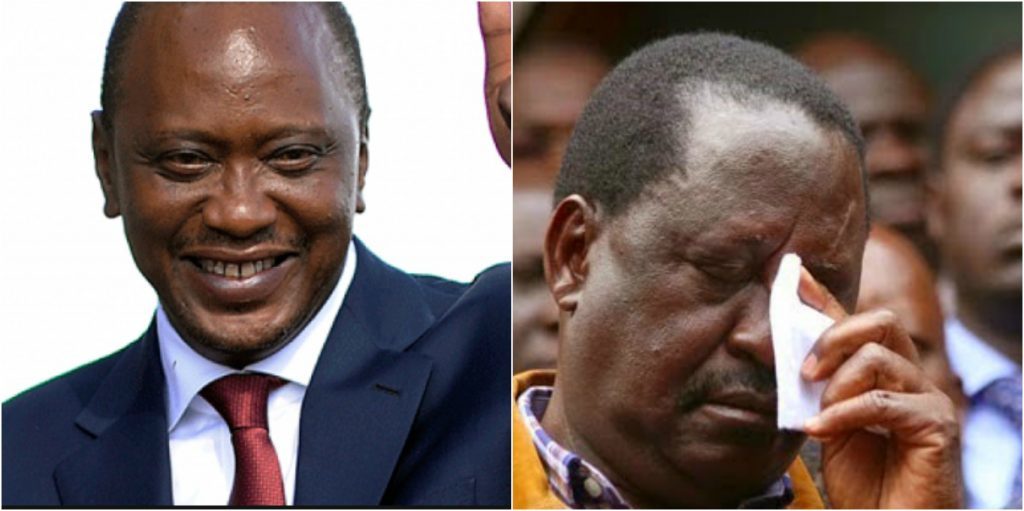
Violence erupted after the re-election of Kenyan President Uhuru Kenyatta this week, leaving at least 24 people dead nationwide, a rights group said. …
Kenyatta, the 55-year-old son of the country’s founding President, was declared the winner Friday, defeating veteran opposition leader Raila Odinga for a second five-year term. …
Most of the demonstrators were supporters of Odinga, who has rejected the results of the presidential election, calling the vote rigged.
(CNN, August 13, 2017)
If this seems eerily familiar, this excerpt from “Uhuru Kenyatta, Son of Kenya’s Founding Father, Indicted on War Crimes,” January 24, 2012, might explain why.
__________________
It’s simply impossible for any Westerner to fully appreciate the significance of the son of Jomo Kenyatta (1889-1978) being indicted yesterday by the International Criminal Court (ICC) on charges of ‘organizing a campaign of rape and murder’ against political opponents. …
The crimes against humanity being alleged stem from the orgy of violence that erupted in December 2007, when incumbent President Mwai Kibaki refused to cede power to Raila Odinga after losing a free and fair presidential election.
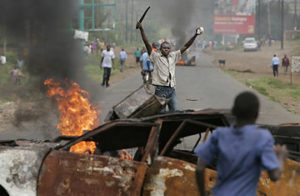 Here, in part, is how I commented on this African pathology as it was playing out back then:
Here, in part, is how I commented on this African pathology as it was playing out back then:
I am simply crestfallen by Kenya’s rapid descent into Rwandan-style tribal warfare in recent weeks. Despite manifestations of congenital kleptocracy, it was just beginning to appear worthy of being called a beacon of democracy on that Dark Continent.
But when President Mwai Kibaki and his ruling party refused to cede power after losing national elections on December 27, I was so mindful, indeed fearful, of the potential for widespread civil unrest that I wrote the following:
‘[T]his sets up the all too familiar prospect of Africans resorting to tribal warfare to settle their political disputes. … Those of us who are still hoping against hope for a political awakening in Africa cannot help but look on in despair as Kenya descends back into the heart of darkness – where bloodlust gives rise to more Idi Amins and Rwandan-style genocides.’
(“Conflict in Kenya: another African genocide in the making,” The iPINIONS Journal, January 17, 2008)
When the dust settled – with Kibaki and Odinga forming a grand coalition government – 1200 people were reported killed and 600,000 displaced.
__________________
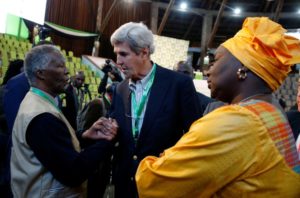 To be fair, despite the violence that has already erupted, Kenya seems unlikely to descend into that kind of tribal warfare. The primary reason is that, unlike that fateful election in 2007, international observers immediately certified this one as free and fair:
To be fair, despite the violence that has already erupted, Kenya seems unlikely to descend into that kind of tribal warfare. The primary reason is that, unlike that fateful election in 2007, international observers immediately certified this one as free and fair:
International election observers have called on politicians defeated in Kenya’s fiercely contested polls to concede gracefully without taking their struggle to the streets. …
Provisional results released by Kenya’s election commission have put the incumbent president, Uhuru Kenyatta, ahead by 54.2% of votes counted, to 44% for Odinga. …
The observers [led by former US secretary of state John Kerry for the Carter Center] commended officials for the relatively smooth running of the polls, and complimented Kenyans for their ‘commitment and determination.’
(London Guardian, August 10, 2017)
It is also noteworthy that, just days ago, Odinga was insisting he saw no point in resorting to the courts. Because he’s now going through the face-saving motions of filing legal complaints and threatening a campaign of nonviolent civil disobedience to prevent “democracy’s slaughter.”
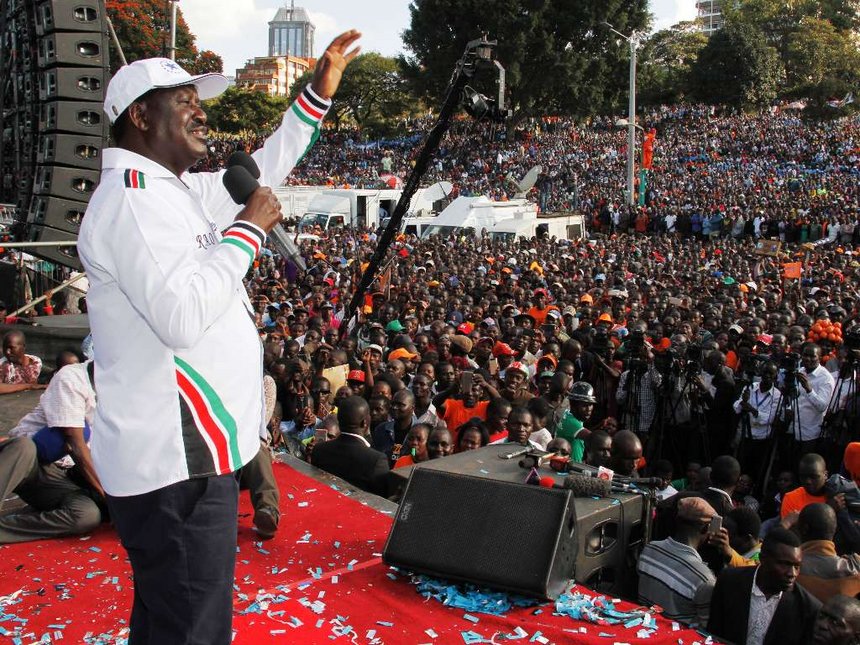
But even his most rabid supporters know that Odinga does not have a snowball’s chance in Hell of doing in court what he could not do at the polls and cannot do through civil disobedience. No doubt they are mindful that Odinga did the same to no avail after losing the 2013 election to Kenyatta.
Perhaps most telling, though, is that these are the same Kenyans who were hailing Kenyatta a few years ago for going to the ICC and beating its prosecutors at their own game.
Last week the International Criminal Court in The Hague (ICC) decided not to prosecute the president of Kenya for allegedly triggering ethnic violence that killed 1200 men, women, and children. …
Prominent political commentators like Natznet Tesfay, head of Africa analysis at IHS Country Risk, are predicting that, with no fear of ICC prosecution, a congenital need for ethnic supremacy will plunge Kenyatta’s Kikuyus and Ruto’s Kalenjins back into the kind of violence that gave rise to ICC charges in the first place.
But I’m convinced they both recognize and appreciate that they have too much to gain by continuing their coalition government.
(“ICC Decides Not to Prosecute Kenya’s Kenyatta. Duh,” The iPINIONS Journal, December 8, 2014)
Sure enough, Kenyatta is keeping Ruto close and complacent as his deputy president …
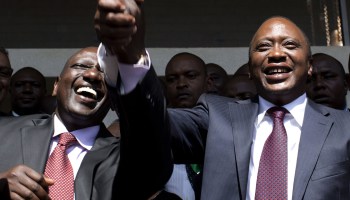
With that, my heart goes out to Odinga. Because he must feel like his family is fated to play second fiddle to Kenyatta’s. After all, that’s the role his father, J.O. Odinga, had to play to Kenyatta’s father, Jomo.